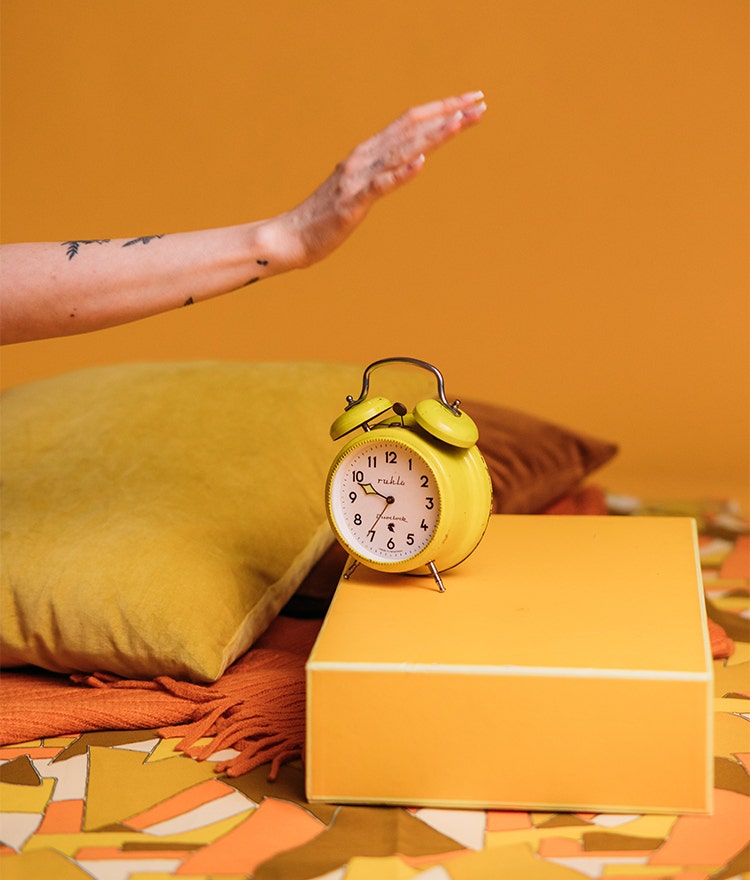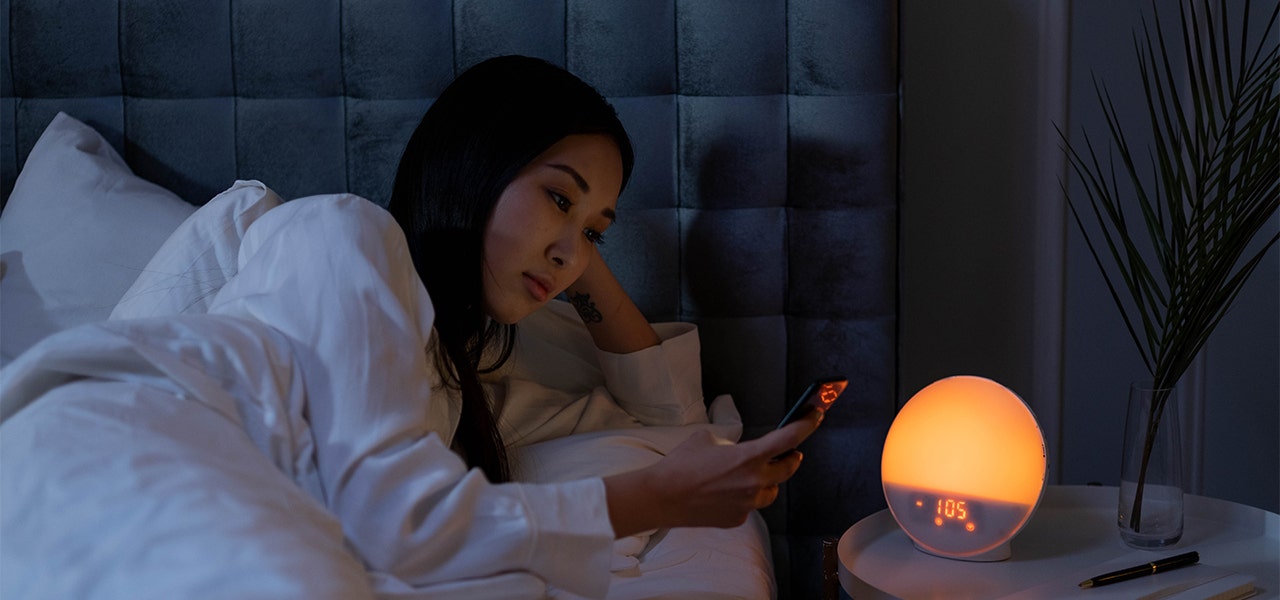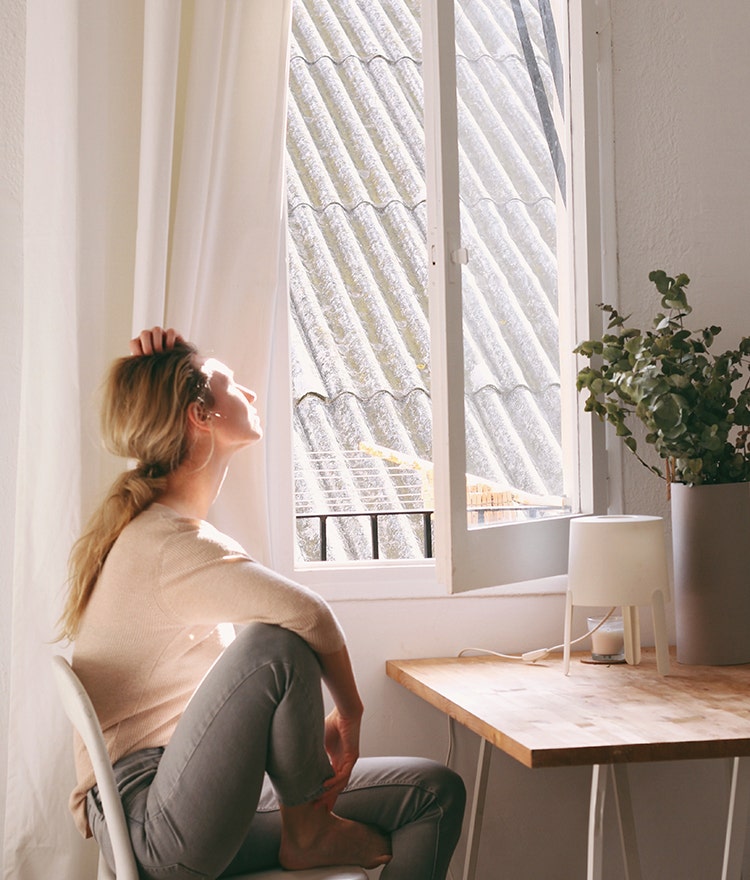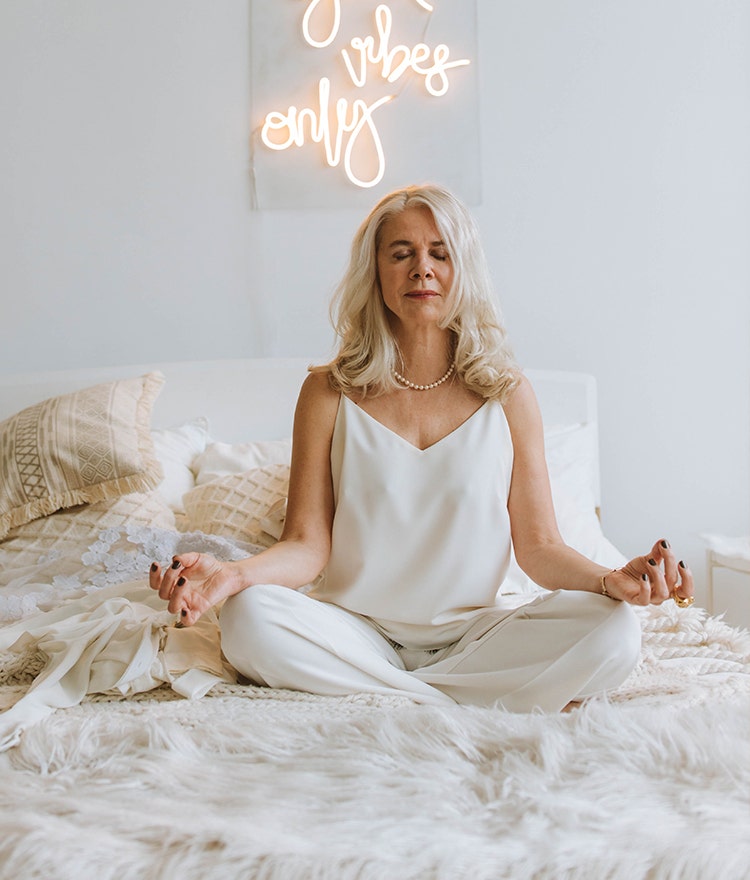
For many, your least favorite day of the year is coming up this weekend. No, not Tax Day – we’re talking the end of Daylight Savings Time (DST).
Sure, we love that extra hour of sleep that the “fall back” time change brings. But, the fall time change also comes with noticeably less daylight. It can feel bleak when your morning and evening commute are both done in darkness.
On a more serious note, for some people, the fall time change kickstarts seasonal depression. The end of DST can have a huge impact on your mental health because sleep, sunlight and mood are all connected. Fortunately, there are a few things you can do to shrug off your grogginess and combat the winter blues.
Let’s dig into the fall time change and how to add the self-care you need into this transition.


Wait … Isn’t the DST time change ending?
Not exactly. In recent news, there has been talk of eradicating fall time change altogether, making Daylight Savings Time permanent beginning in late 2023. This would end the twice-annual changing of clocks.
The U.S. Senate has passed legislation and approved the measure, called the Sunshine Protection Act supported by those advocating for longer afternoons and more sunlight. Supporters of the bill say the change will help enable children to play outdoors later year-round and combat seasonal depression and other health issues.
However, the House of Representatives still has to pass the bill before it goes to the president to sign into effect. So, stay tuned!
The fall time change and your circadian rhythm


Circadian rhythm, which is the body’s internal clock that helps regulate sleep, is influenced by natural light. So much so that light is your body’s primary environmental cue to either wake up or prepare for sleep.
Light exposure suppresses the secretion of melatonin which induces restful and restorative sleep. On the other hand, darkness or lack of light can induce the secretion of melatonin and make you feel tired. This is why many experience excess fatigue and a lack of motivation in the winter when it gets dark earlier.
And, the fall time change equals less light, right? Essentially, the fall time change doesn’t just affect our actual clocks – it can seriously mess with your internal clock. The time change forces your previously set circadian rhythm to have to “reset” because it is suddenly no longer synced with your current sleep-wake cycle.
Warning signs of seasonal depression
Feeling sluggish for a few days, or even a week or so, after the fall time change is completely normal. Although it is only an hour change, the abrupt end of DST can cause significant disturbance to your circadian rhythm and quality of sleep. It can make you feel emotional, stressed or irritable, too.
However, feeling low for an extended time is not a typical reaction to the end of DST. Some people suffer from seasonal depression, which most commonly follows a pattern of feeling depressed during the fall and winter and feeling well or “normal” the rest of the year. Seasonal depression is not something you can just fix by catching up on sleep.




Sleep and mental health are very closely related. So, whether you’re dreading regular old sleep deprivation or bracing for seasonal depression, taking care of your sleep is a proactive step.
The truth is that a fixed year-round standard time best aligns with human circadian biology and health. But until that (hopefully) happens, here are things you can do to prepare for the end of DST and support yourself through the time change:
- Go to sleep at your usual bedtime on the Saturday night before DST ends.
- Set an alarm on the Sunday when DST ends at your normal wake-up time.
- Get as much sun exposure as you can during the day to take advantage of what sunlight there still is.
- Exercise regularly to promote healthy sleep patterns, boost serotonin levels and release endorphins.
- Follow a regular nighttime routine to wind down and practice good sleep hygiene.
If you can’t seem to shake the exhaustion and mood dip after the fall time change comes and goes, just stay connected to your mind and body. Warning signs of seasonal depression include:
- Feeling sad or depressed for no apparent reason
- Lack of motivation and loss of interest in things previously enjoyed
- Increase in eating and weight gain
- Excessive sleeping or increased fatigue
- Feeling restless or bogged down
- Feeling worthless, guilty or like a failure
- Difficulty making decisions or concentrating
- Thoughts of death or suicide
If you’re struggling, don’t hesitate to confide in a friend or reach out for professional help.
5 Sleep tips for the fall time change
Get organized
Now's the perfect time to catch up on everything you let go during the busier summer months. Use the time to clean out that closet that’s spilling over, reorganize your kitchen or tackle a DIY project. Downsizing clothing or furniture? Don’t forget to look for nonprofits that could put your discarded items to incredible use!
Connect with loved ones
The longer evenings are the perfect opportunity to slow down and reconnect with family or call that friend you’ve been meaning to catch up with. Feeling close with your people is a surefire way to let some light in.
Expand your nighttime routine
The good news is that with a longer evening can come a longer evening routine! Try adding relaxing steps to your nighttime routine, like taking a bath, sipping a cup of herbal tea, doing an at-home facial, journaling, meditating or whatever feels right to you. Looking for greener ways to relax? We have ideas!


Embrace the longer evenings
Remember, perspective is everything. Although the days may seem shorter and it gets dark earlier, try finding ways to enjoy the longer evenings. Think of this time of year as an opportunity to slow down and turn inward. There are many ways to enjoy the longer evenings that promote health, happiness and better sleep.
Stay home
Use the longer evenings to spend more time at home doing things you enjoy! Whether this means cooking a homemade meal, cozying up on the couch to watch your favorite show, or sitting by the fire and reading, this time of year is when staying home seems to become everyone’s preference.
Go to bed earlier
If you can’t beat ‘em, join ‘em, right? If the darkness makes you sleepy, don’t fight it! Try winding down, unplugging, turning your phone and electronics off, and opting for an earlier bedtime. By doing so, you may find it easier to naturally rise earlier with the sun, which will improve your circadian rhythm and mood. And, you know we have to remind you that opting for a certified organic mattress and pillow makes for a better night's sleep, too!
Who knows? Maybe this will be the last time you experience the end of Daylight Savings Time. With these helpful tips and information, we hope you make the most of it!
